第83章 CHAPTER XXVI KINDLINESS OF THE CANNIBALS(1)
THERE seemed to be no rogues of any kind in Typee. In the darkest nights the natives slept securely, with all their worldly wealth around them, in houses the doors of which were never fastened. The disquieting ideas of theft or assassination never disturbed them. Each islander reposed beneath his own palmetto-thatching, or sat under his own bread-fruit tree, with none to molest or alarm him. There was not a padlock in the valley, nor anything that answered the purpose of one: still there was no community of goods. This long spear, so elegently carved and highly polished, belongs to Warmoonoo- it is far handsomer than the one which old Marheyo so greatly prizes- it is the most valuable article belonging to its owner. And yet I have seen it leaning against a cocoa-nut tree in the grove, and there it was found when sought for.
Here is a sperm-whale tooth, graven all over with cunning devices-it is the property of Karluna. It is the most precious of the damsel's ornaments. In her estimation, its price is far above rubies; and yet there hangs the dental jewel, by its cord of braided bark, in the girl's house, which is far back in the valley; the door is left open, and all the inmates have gone off to bathe in the stream.*
* The strict honesty which the inhabitants of nearly all the Polynesian Islands manifest towards each other, is in striking contrast with the thieving propensities some of them evince in their intercourse with foreigners. It would almost seem that, according to their peculiar code of morals, the pilfering of a hatchet or a wrought nail from a European is looked upon as a praiseworthy action.
Or rather, it may be presumed, that bearing in mind the wholesale forays made upon them by their nautical visitors, they consider the property of the latter as a fair object of reprisal. This consideration, while it serves to reconcile an apparent contradiction in the moral character of the islanders, should in some measure alter that low opinion of it which the reader of South Sea voyages is too apt to form.
So much for the respect in which such matters are held in Typee.
As to the land of the valley, whether it was the joint property of its inhabitants, or whether it was parcelled out among a certain number of landed proprietors, who allowed everybody to roam over it as much as they pleased, I never could ascertain. At any rate, musty parchments and tide-deeds there were none in the island; and I am half inclined to believe that its inhabitants hold their broad valleys in fee simple from nature herself.
Yesterday I saw Kory-Kory hie him away, armed with a long pole, with which, standing on the ground, he knocked down the fruit from the topmost boughs of the trees, and brought them home in his basket of cocoa-nut leaves. To-day I see an islander, whom I know to reside in a distant part of the valley, doing the self-same thing. On the sloping bank of the stream were a number of banana trees. I have often seen a score or two of young people making a merry foray on the great golden clusters, and bearing them off, one after another, to different parts of the vale, shouting and tramping as they went. No churlish old curmudgeon could have been the owner of that grove of bread-fruit trees, or of these gloriously yellow bunches of bananas.
From what I have said, it will be perceived that there is a vast difference between "personal property" and "real estate" in the valley of Typee. Some individuals, of course, are more wealthy than others.
For example: the ridge-pole of Marheyo's house bends under the weight of many a huge packet of tappa; his long couch is laid with mats placed one upon the other seven deep. Outside, Tinor has ranged along in her bamboo cupboard- or whatever the place may be called- a goodly array of calabashes and wooden trenchers. Now, the house just beyond the grove, and next to Marheyo's, occupied by Ruaruga, is not quite so well furnished. There are only three moderate-sized packages swinging overhead; there are only two layers of mats beneath; and the calabashes and trenchers are not so numerous, nor so tastefully stained and carved. But then, Ruaruga has a house- not so pretty a one, to be sure- but just as commodious as Marheyo's; and, I suppose, if he wished to vie with his neighbour's establishment, he could do so with very little trouble. These, in short, constitute the chief differences perceivable in the relative wealth of the people in Typee.
They lived in great harmony with each other. I will give an instance of their fraternal feeling.